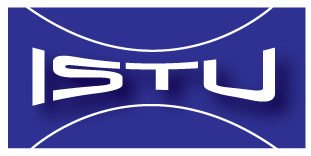The Early Career Clinical Investigator Award
The Early Career Clinical Investigator Award was established in 2022. This annual award acknowledges the passion of early career stage physicians who embrace the adoption of focused ultrasound into their clinical practice.
Past recipients of the award include:
- Raúl Martínez-Fernández, M.D., Ph.D. (Lyon 2023)
- Nir Lipsman, M.D., Ph.D., FRCSC (Toronto 2022)
The International Society for Therapeutic Ultrasound awards the Early Career Clinical Investigator Award to an individual who is relatively early in their professional career (not more than 10 years since graduation from residency or fellowship if applicable), and who has been active in the general area of therapeutic ultrasound through ISTU, their specialty National Societies, or other recognized Regional or International Organizations. The successful candidate will have contributed substantially to the advancement of therapeutic ultrasound through one or more of the following: leading clinical research studies, publishing results of clinical research in peer reviewed journals, adopting focused ultrasound treatments into their clinical practice.
Rules
One prize is to be presented each year, except in special circumstances. Nominees are not necessarily current members of ISTU. A nominee must be relatively early in their professional career. For someone working in the field or similar field continuously since graduation, early career is interpreted as no more than 10 years since graduation from residency or fellowship where applicable. In special circumstances, an individual with more than 10 years from their graduation will be considered (for example, someone who took substantial time away from their career after graduation).
Process
Nominees may be self-nominated or be nominated by any peer (not necessarily a member of the Society). The nomination packet should include a nomination letter, two letters of support (again not necessarily from members of the Society), and a professional history.
The professional history should include the following:
a. Education, including all degrees and awarding institutions
b. Positions held
c. Major professional achievements and awards
d. Contributions to therapeutic ultrasound (participation in clinical trials, use of FUS for clinical treatments)
e. Publications: Please indicate also whether the publication is an article, letter, abstract, chapter in a book, etc.
In the event a nominee is not an awardee in a particular year, provided the nominee is still eligible under the early career criteria, that person's application may be considered again the following year. Nominations will not automatically be re-considered. All new materials may be submitted, or the previous year's materials may be resubmitted with a new nomination letter.
